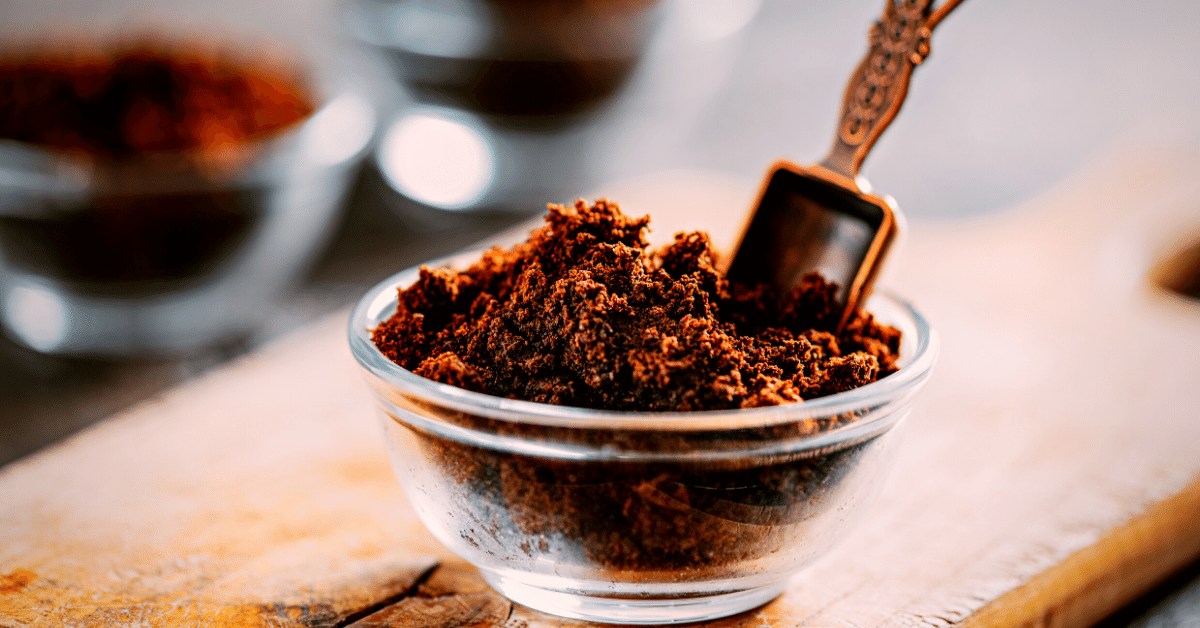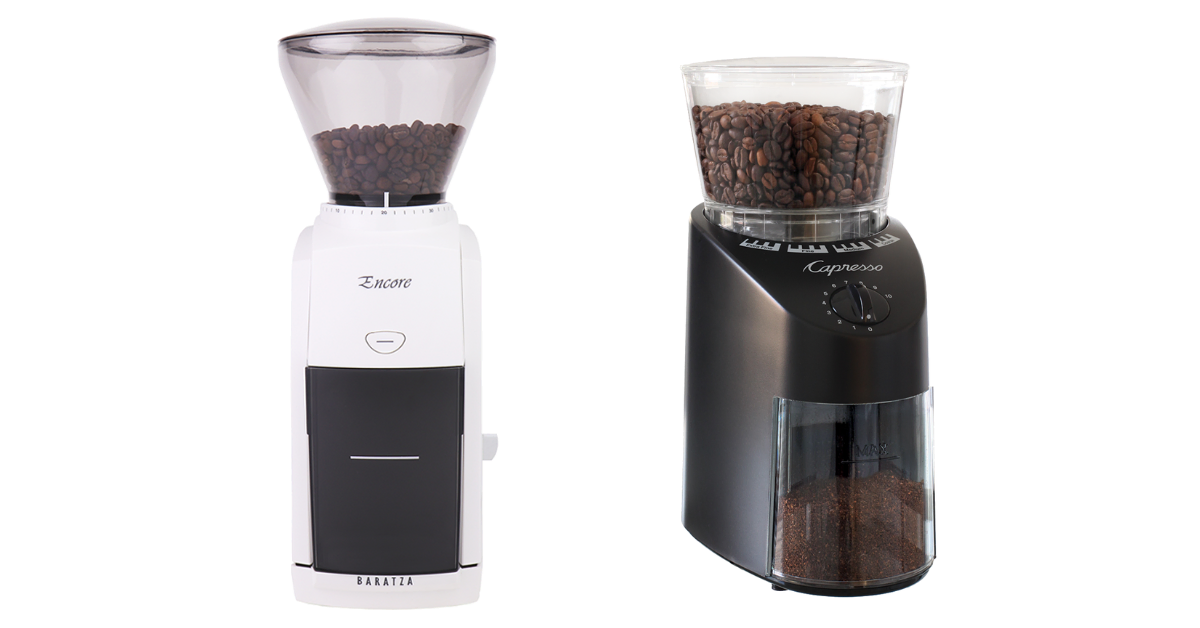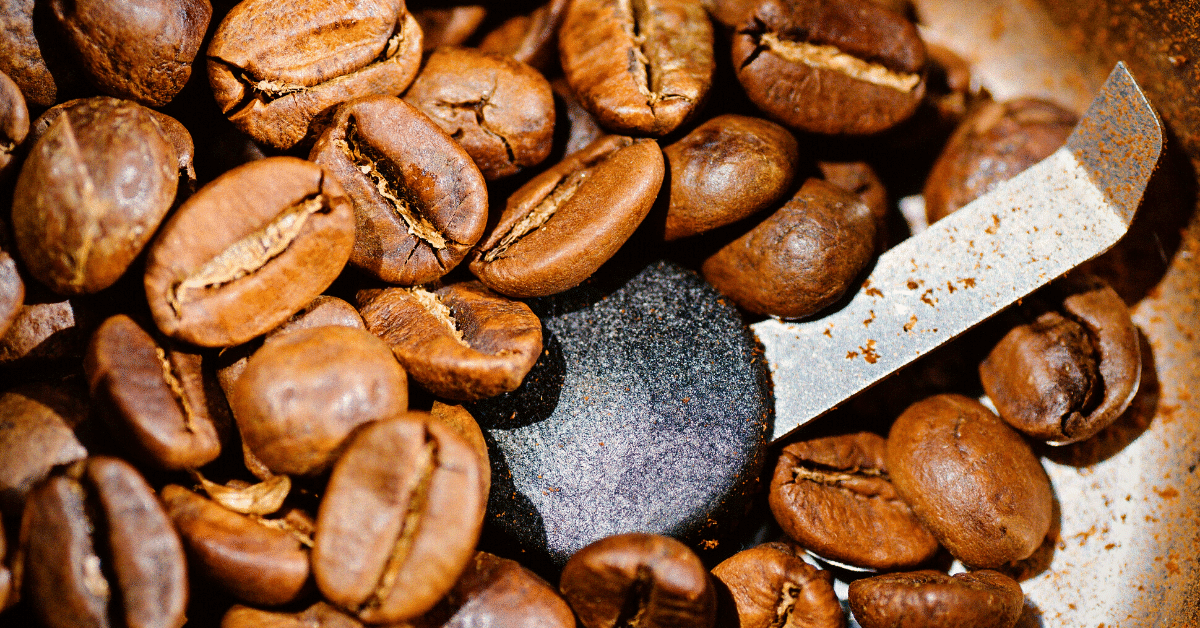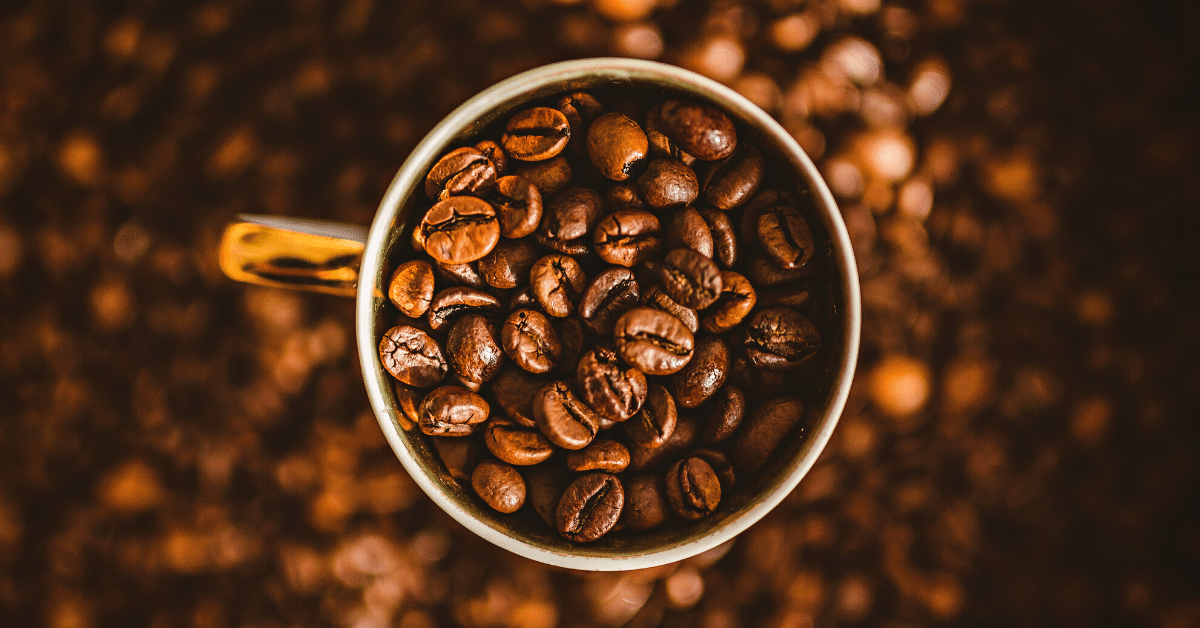How much potassium is in coffee? Jump into our article and find out the essential facts about the amount of potassium in your cup of joe.
Paying close attention to your nutrients?
Potassium is one of the hardest ones to keep the right balance off.
Luckily, coffee contains this precious nutrient.
But how much potassium is in coffee?
After hours of research, I’ve found the right answer, and it might not be as impressive as you might think.
Let’s dive into the details.
The Basics of Potassium
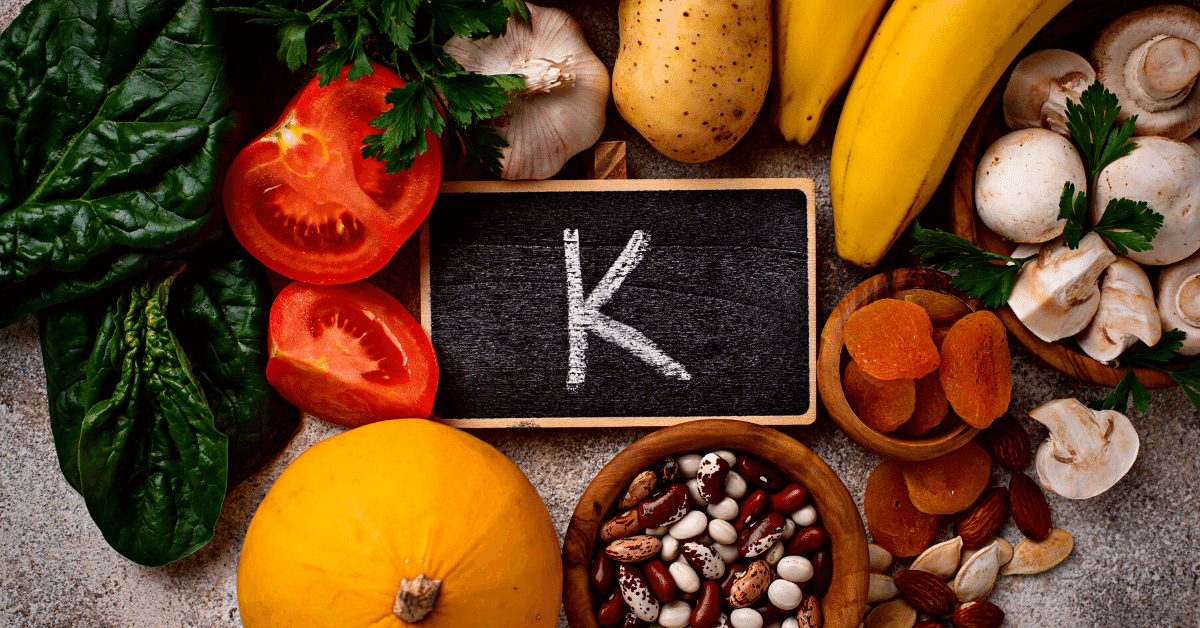
Remember chemistry class?
Potassium is a mineral. But not just any mineral – it’s an electrolyte.
Electrolytes are water-soluble minerals that are electrically conductive.
Potassium, in particular, is really important for body fluid balance.
You see, the body consists of 60% water.
About ⅔ of that water is found inside the cells, and it’s named accordingly – intracellular fluid. The rest is present in the blood, lymph, body cavities, spinal cord, and body tissues. This fluid is otherwise known as the extracellular fluid.
Now, the balance between these types of fluid is crucial for the proper function of the body system. And that’s what potassium is here for.
As an electrolyte, potassium also works as a “messenger.” By this, I mean it carries electrical impulses through the nervous system from the body to the brain and vice versa.
You see, potassium is crucial for our body’s health. And we get potassium in our body through our diet.
For a healthy adult, 4,700 mg of potassium should be the daily goal.
One of the best potassium sources is a banana, which has around 420 mg of potassium.
But how about coffee?
Let’s see.
How Much Potassium is in Coffee?
To give you a more precise answer, we need to define what you mean by “coffee.”
Black Coffee

A standard cup of regular black coffee is 8 ounces large. And this amount of your favorite liquid has about 116 mg of potassium.
I was actually quite surprised by this fact. I mean, this is a beverage that has practically no calories and very little nutritive value.
Now, that might not seem like much, given the daily recommended amount in mind. But a lot of people don’t stop at a single cup of coffee per day. So the numbers add up.
Coffee with Milk
Not everyone likes their coffee black. And those who add milk to their coffee actually have a slightly higher potassium intake.
Milk is a great source of potassium.
When it comes to dairy milk, the lower the fat content, the higher the potassium level.
So, for instance, 1% milk has about 366 mg of potassium in a single cup. Skimmed milk, on the other hand, has 381 mg.
These numbers are great, but keep in mind that you don’t (typically at least) add a whole cup of milk to your coffee.
More often than not, it’s just a splash. In that case, you’re adding no more than 20 mg of potassium at a time.
As far as milk alternatives go, numbers vary depending on the type.
So, for instance, soy is rich in potassium, with 298 mg per cup. Rice milk, on the other hand, has just 61 mg.
Coffee with Creamer
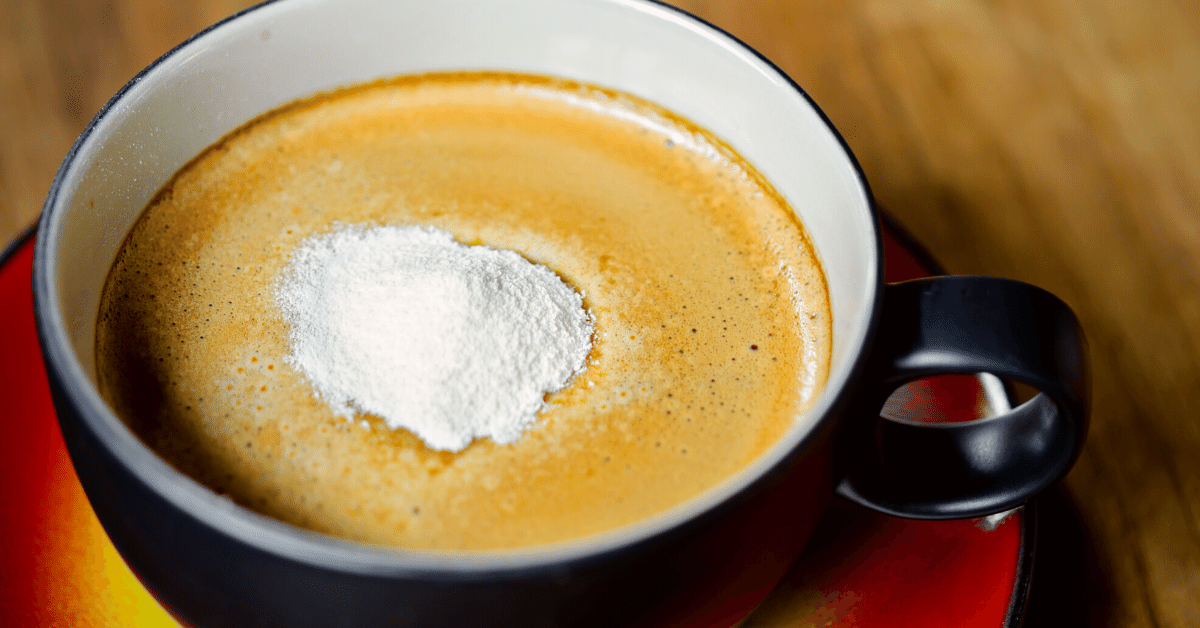
When it comes to creamer, it really depends on the brand and the ingredients.
Typically, these numbers range between 50 and 100 mg per single serving. This isn’t much of a surprise, given that you only add a little bit of coffee creamer into your cup.
As for the half-and-half, the small coffee serving has roughly 15 mg of potassium.
Instant Coffee
Instant coffee also contains potassium. But the production of instant coffee involves a lot of processing, and that causes it to lose some of its nutrients. And potassium isn’t spared.
So an 8-ounce cup of instant coffee typically has about 50 to 76 mg of potassium – about half the amount of black coffee.
In other words, that’s about 4.8% of your daily potassium intake.
Decaf Coffee
Interestingly enough, apart from removing caffeine, the decaffeination process seems to also affect potassium levels.
You see, decaffeinated coffee has slightly more potassium than regular coffee. But these numbers aren’t actually that much higher.
A standard 8-ounce cup of decaf has roughly 216 mg of potassium.
Health Benefits of Potassium
As we already said, potassium is an electrolyte – it helps with electric conductivity inside our bodies.
But what does that actually mean, health-wise?
Well, here are the things potassium does for us:
- Reduces blood pressure – Potassium does that by helping our body get rid of excess sodium.
- Reduces risk of stroke – This is directly related to the fact that it lowers blood pressure.
- Prevents osteoporosis – Potassium neutralizes acid load and reduces calcium loss from the bone. That way, it prevents bones from getting porous and less dense.
- Prevents kidney stones – By preventing calcium loss through urine, it prevents the formation of stones in the kidneys.
- Prevents fluid retention – By increasing the production of urine, it prevents body fluids from building up.
As you can see, potassium plays a crucial role in keeping our body functioning properly.
The Dangers of Potassium
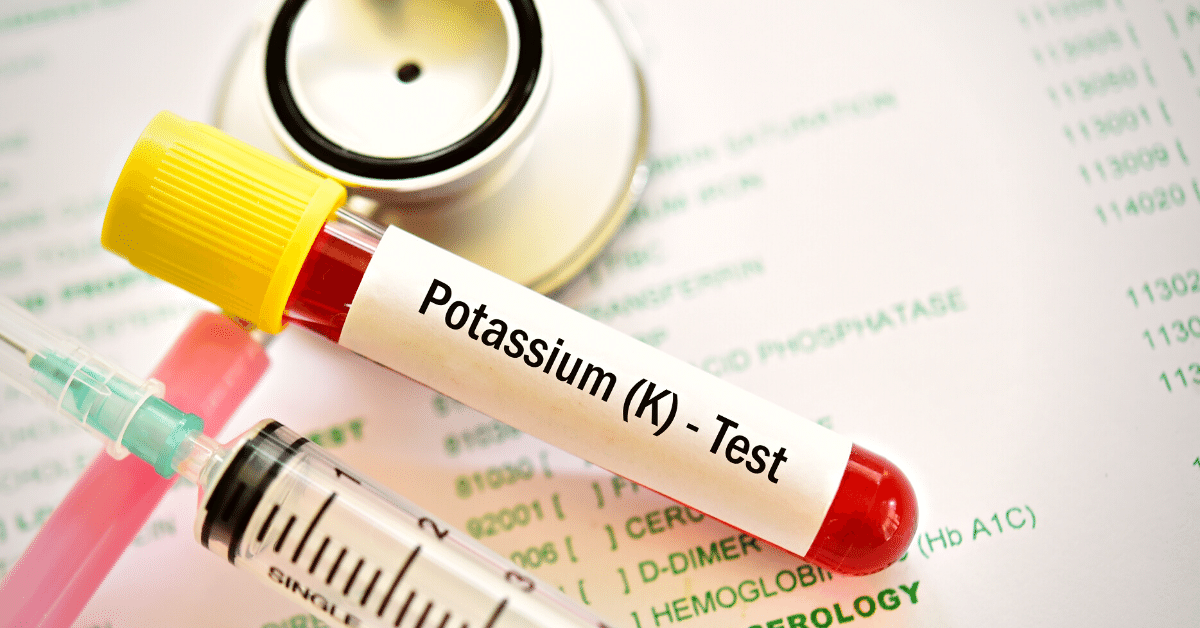
You see, a lot of people don’t typically meet the daily requirement for potassium. That’s mainly because we tend to eat very unhealthily.
But, depending on your diet, you might also be taking too much potassium.
Now, is that a problem?
Well, it can be for people who have kidney disease.
Basically, if the kidneys aren’t removing the excess potassium from your blood, it will build up.
And if that happens, you can get a condition called hyperkalemia.
Having too much potassium in your system isn’t usually easy to notice. Most symptoms you’ll experience are rather similar to those of other conditions.
Typically, you should feel:
- Muscle cramps
- Chest pain
- Nausea
- Irregular and unusual heartbeat (can be faster or slower)
- Shortness of breath
But this condition should be taken seriously, as it can even be deadly if not treated.
Of course, there’s also such a thing as having low potassium levels in your system.
That condition, called hypokalemia, has similar symptoms to its counterpart. These include muscle cramps and irregular heartbeat. But, you might also experience:
- Constipation
- Extreme tiredness
- Tingling and numbness
In both cases, these conditions shouldn’t be ignored as they can be quite dangerous to our health – even fatal.
You see, that’s why you shouldn’t go wild with eating bananas (or other potassium-rich food). By wild, I mean eating like 20 of them in one go.
To Sum Things Up
Potassium is an irreplaceable electrolyte in our organisms. But the only way we get it into our bodies is through diet.
When it comes to coffee, it’s a small but still significant source of potassium. Many people drink more than a few cups of coffee per day, so the numbers can add up. Plus, everything else you add to your cup also affects the amount of potassium you’re taking.
Of course, you should make sure to keep your potassium at the right level. Too little or too much of it can cause serious health problems.
Coffee consumption isn’t gonna change the potassium content in your body drastically, but it can definitely add up to the daily value of this electrolyte. So, that’s one thing to keep in mind if you are a regular coffee drinker.
Is drinking coffee making you nauseous? Here’s our article on why that happens and how you can fix it.

